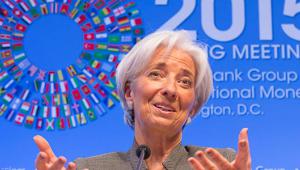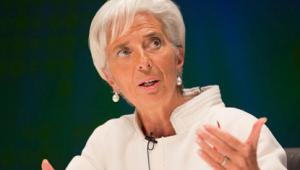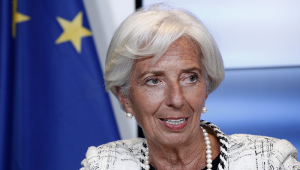By Nick Mann | 6 July 2012
The global economic outlook has become ‘more worrisome’ over the past few months and growth prospects have worsened, Christine Lagarde, the managing director of the International Monetary Fund, said today.
Speaking in Tokyo, she said indicators of economic activity, such as investment, employment and manufacturing output, had deteriorated not just in Europe and the US but also in key emerging markets such as Brazil, India and China.
In the IMF’s next quarterly assessment of the world economy, due to be published in 10 days’ time, the global growth outlook will be ‘somewhat less’ than it previously forecast. ‘And even that lower projection will depend on the right policy actions being taken,’ she added.
In April, the IMF actually upgraded its earlier forecasts for worldwide economic growth in 2012 and 2013 to 3.5% and 4.1% respectively.
Lagarde praised the ‘extraordinary efforts’ that had been made in Europe recently to address the crisis, and in particular the ‘encouraging’ agreement made by eurozone leaders at last week's European Council meeting.
But, she said ‘further progress will continue to be needed to overcome the crisis decisively and avoid the damaging effects on stability and growth. Not just in Europe, but across the globe’.
In particular, she stressed the importance of cooperation between countries. According to the IMF, a ‘coordinated strengthening of policies’ between the Group of 20 leading economies could raise global gross domestic product by 7% and create over 36 million jobs.
Further action within and across regions was needed ‘to break the main chains of this crisis: weak sovereigns, weak banks and weak growth’.
Lagarde called on countries to act ‘decisively’ to tackle public sector debt. ‘Deficit reduction is essential – and for those countries facing market pressure, there is no alternative but to do it now,’ she said. ‘For others, however, adjustment can be more gradual and at a pace that does not undermine recovery.’
The US, in particular, must do all it can to avoid the ‘fiscal cliff’ of expiring tax cuts and automatic spending reductions, which would jeopardise not only the US recovery but the global recovery as well.













